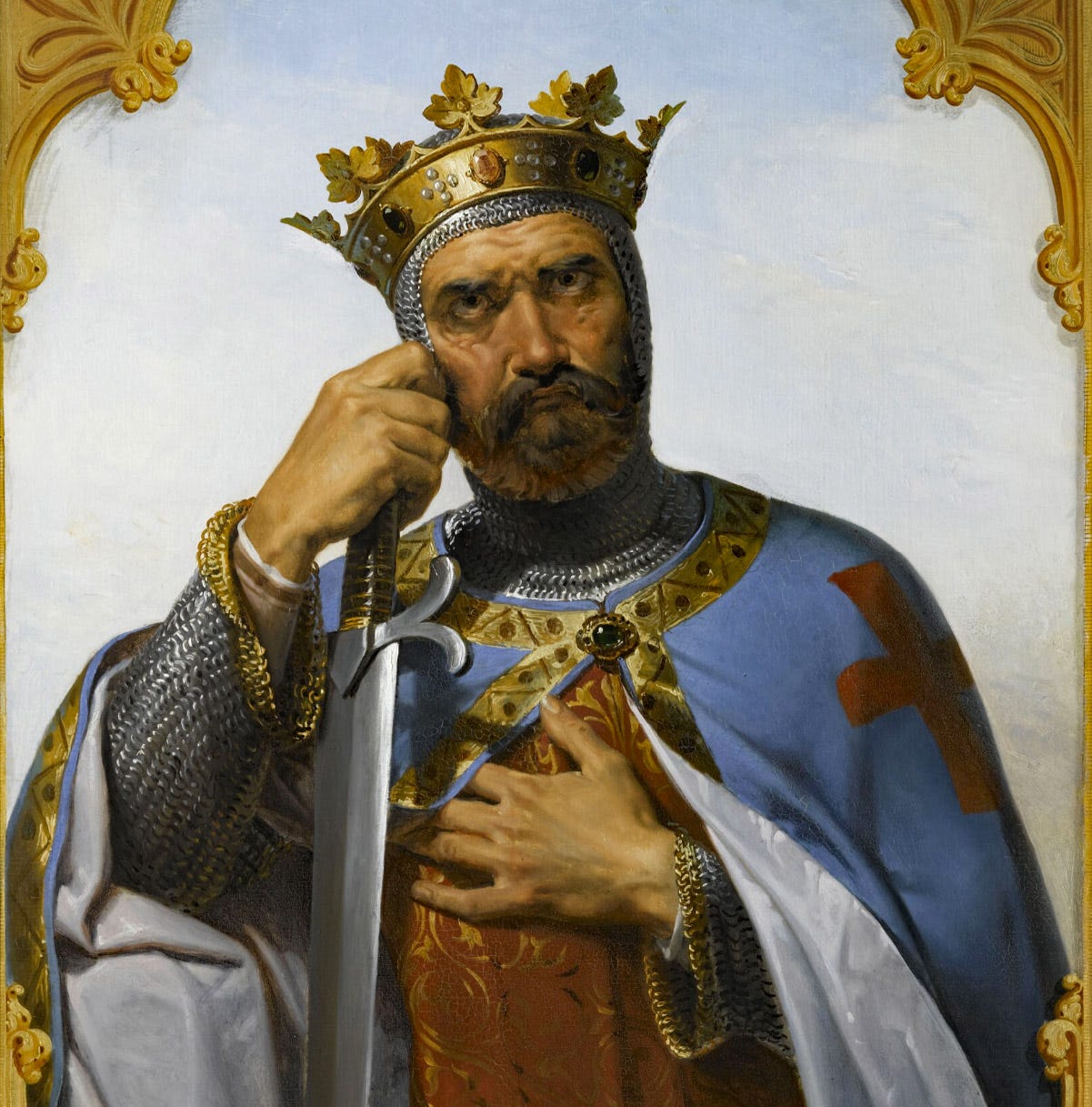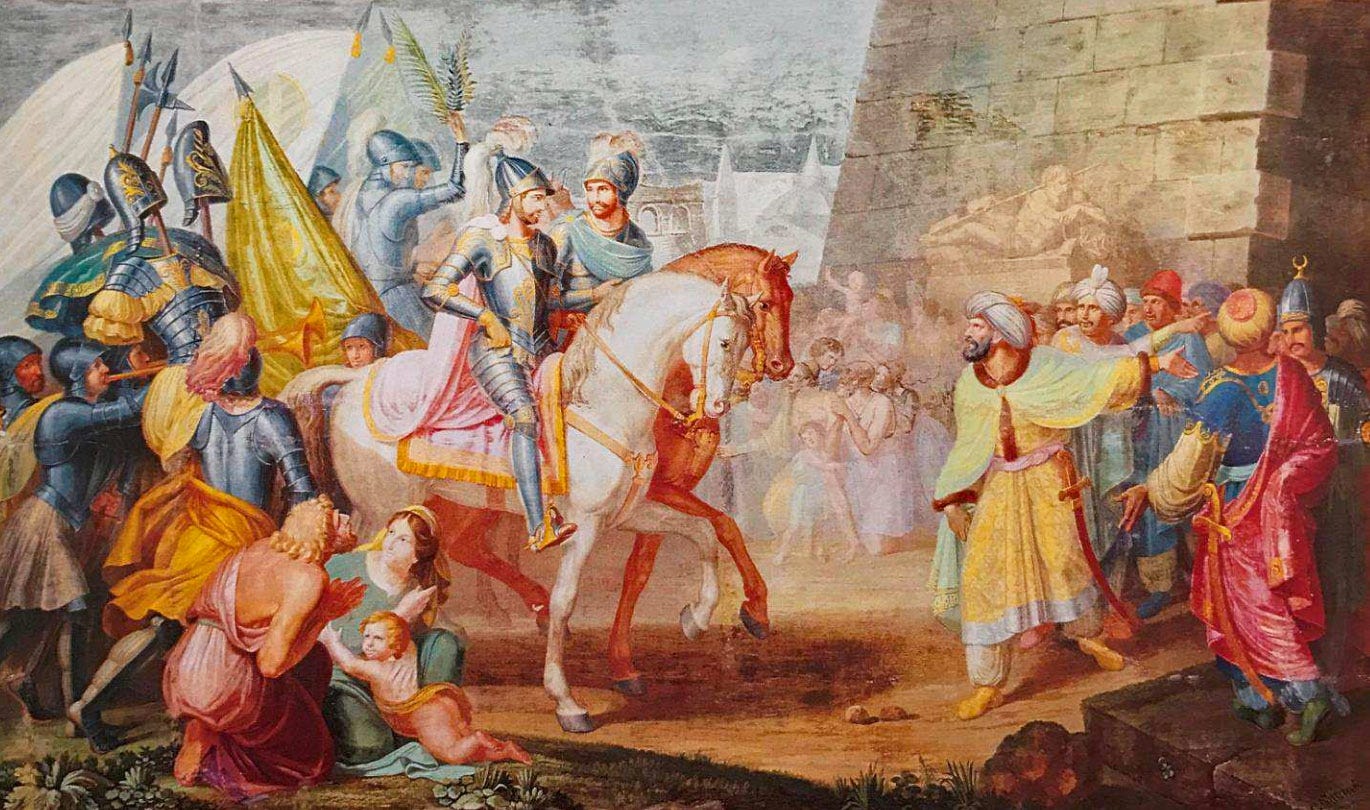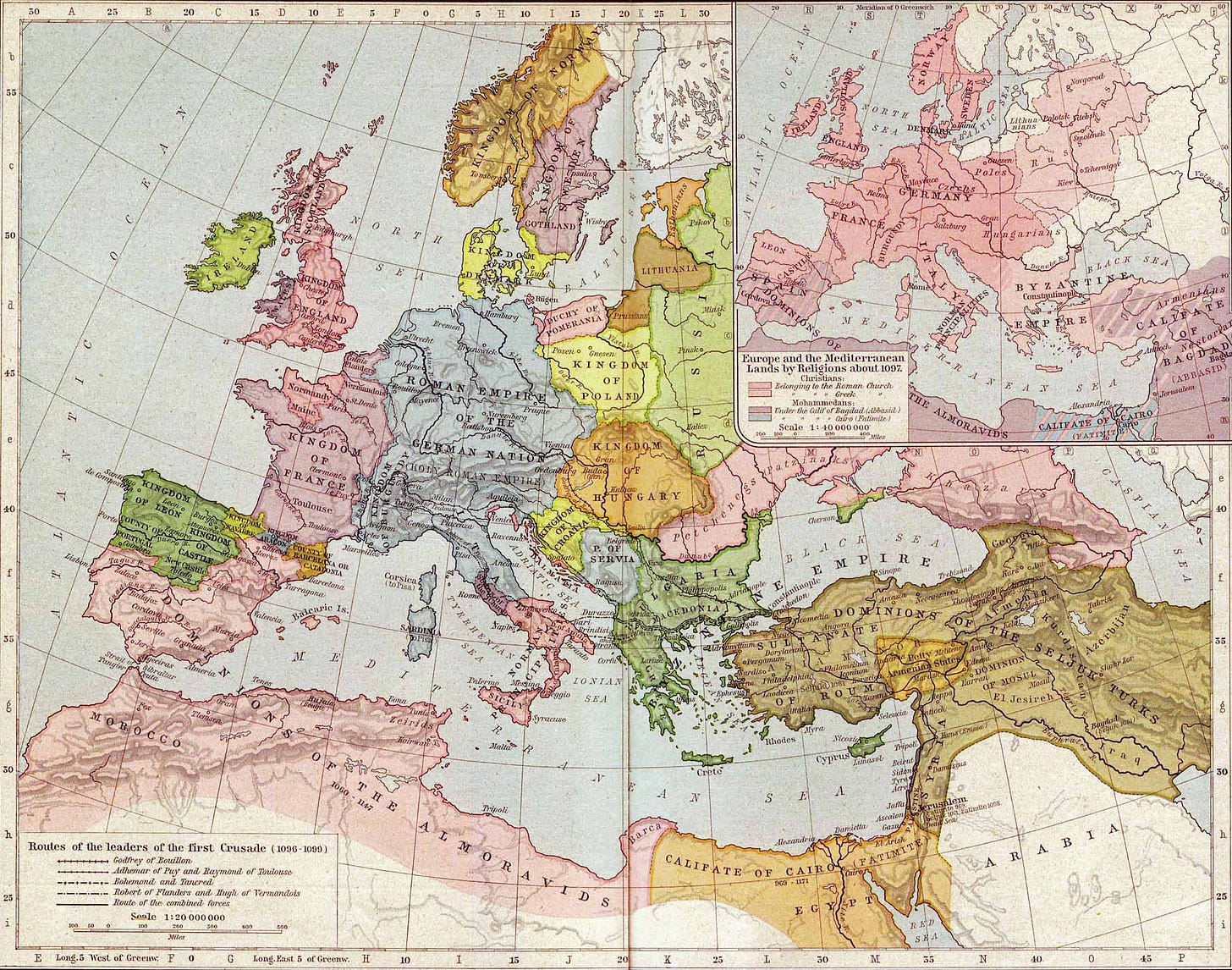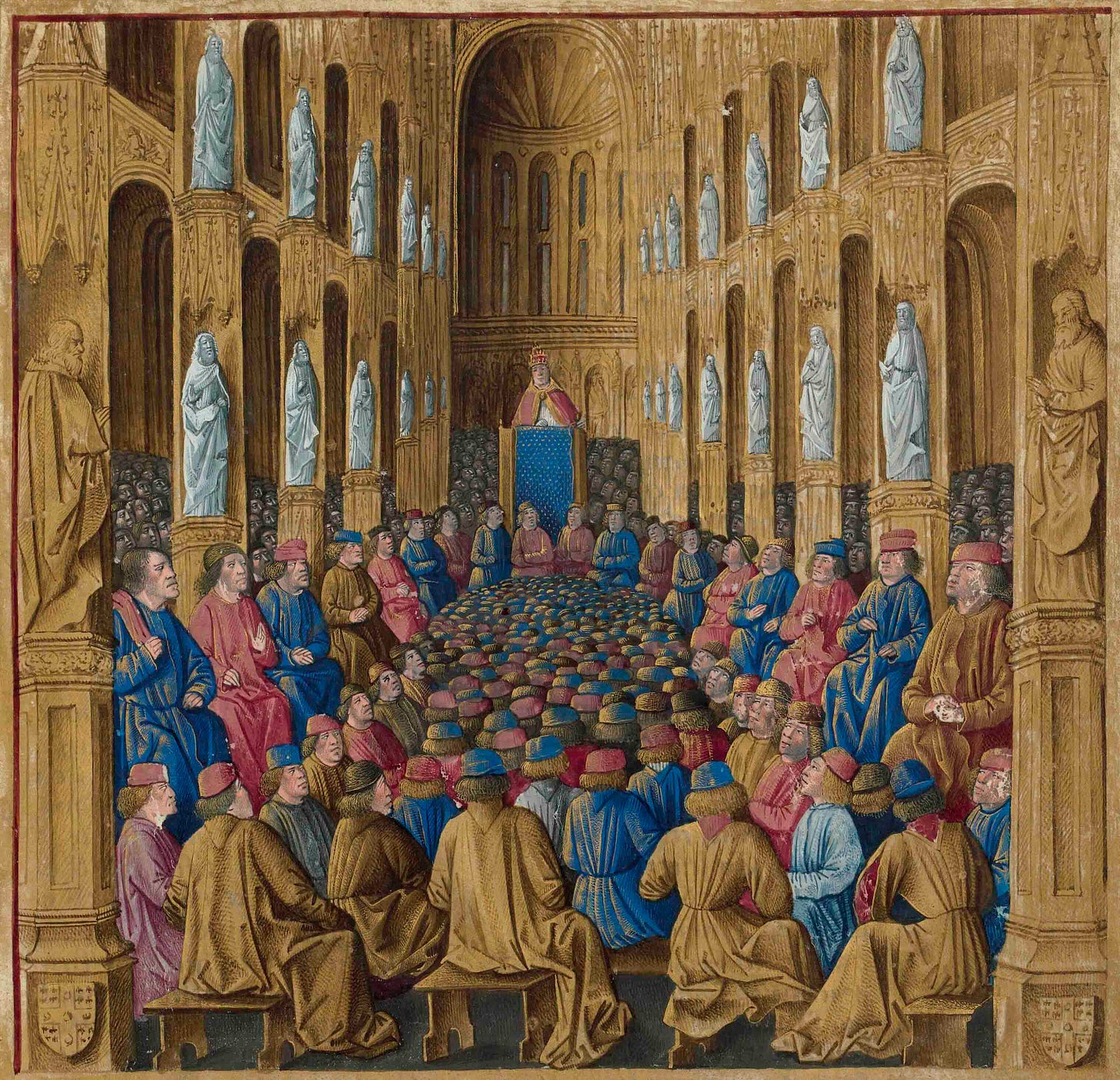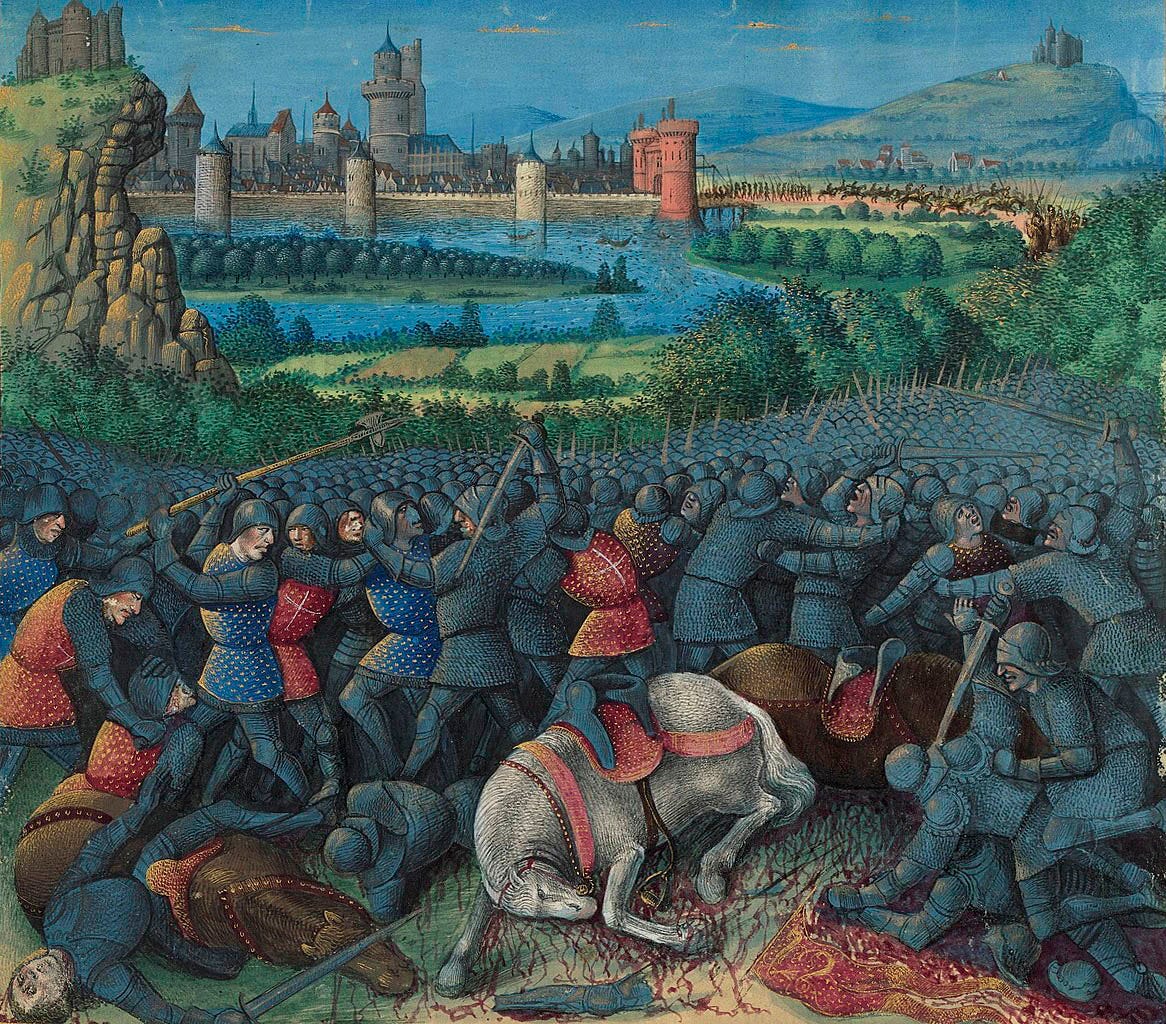The Rogue Crusader
The First Crusade rallied many souls to common cause. Few, however, were quite like the rakish Bohemond, Prince of Taranto and Antioch...
927 years ago this Tuesday, on the 3rd June 1098, the armies of the First Crusade scored their first major triumph in the Levant, with the conquest of the great city of Antioch.
As the most gruelling single ordeal of the Crusade, the Siege of Antioch was a test like few others of faith and physical endurance, as well as integrity in the face of an escalating temptation to sin. Appropriately so, the central figure of this moment was the most controversial of the crusader lords: Bohemond, the Norman Prince of Taranto.
While he was certainly one of the most colourful figures of an already dramatic age, the story of Bohemond de Hauteville is also a warning of the long term cost of short term opportunism.
Today therefore, we consider a tale that is cautionary as well as inspirational — of how, and how not, to crusade…
The Bastard Son
The Norman conquest of southern Italy was, in many ways, a near perfect dress rehearsal for the crusades. For while the ideologies may have been more complex, the basic situation was astonishingly similar, as adventurers from Normandy carved out a series of fiefdoms from lands whose central authorities had crumbled.
The most famed of those adventurers were indeed Bohemond’s own father and uncle, Robert, called Guiscard (‘The Fox’), and Roger de Hauteville, who together exploited the discord in the Eastern Roman Empire and former Kalbid Emirate to drive the Byzantine governors from Italy and Muslim emirs from Sicily over the course of the mid to late 11th century. As the eldest son of Robert, Bohemond could expect to inherit a sizeable swathe of his father’s conquests.
Unfortunately, however, that destiny was promptly torn away from him in 1058, when Robert’s marriage to Bohemond’s mother Alberada was annulled, in favour of the more politically advantageous Sikelgaita, daughter of Guaimar IV of Salerno. Since the separation was cited on grounds of consanguinity, Bohemond was rendered illegitimate, and passed over in the succession for Robert and Sikelgaita’s subsequent son, Roger Borsa.
As the now bastard son of a foreign adventurer, Bohemond had few options. If legitimacy and recognition were to come, it would do so via the sole avenue open to a dispossessed nobleman — war…
Eastern Ambition
In 1081, the Normans sensed opportunity. Robert, no longer content with Southern Italy, saw promise in yet another land apparently seized by chaos and on the brink of collapse — the Eastern Roman Empire itself, still reeling from the catastrophe of the Battle of Manzikert a decade earlier, which had seen near all of Asia Minor overrun by the Turks.
Thus did Robert, in an audacious bid for the Imperial Crown itself, launch an invasion of the Balkans, with Bohemond leading the vanguard. At Dyrrachium (today’s Durrës, also called Durazzo) in October, father and son scored an extraordinary victory over the new Byzantine Emperor, Alexius I, destroying the majority of the Emperor’s elite Varangian Guard.
The Roman Empire might have ended there and then, were it not for two things — Alexius remained level-headed, and Robert Guiscard died four year later (possibly by poisoning), bringing the campaign to an early end.
The messiness of the Norman succession, meanwhile, triggered a civil war in the Italian South, as Sikelgaita persuaded many of the barons to support her son Roger Borsa’s claim, while Bohemond asserted his right as the eldest son. This the latter would do with sufficient skill at arms to force a compromise, agreed to by both brothers by the tomb of their father at Venosa, which ceded a considerable swathe of Apulia to Bohemond, where he established a principality of his own, centred around the city of Taranto. It was his first princely title, but it would not be his last.
Bohemond, as his father’s son, was restless, and Italy had stunted his ambition. Yet it would provide him with the spark for a greater calling. For in the year 1097, while engaged in the comparatively mundane business of assisting his uncle Roger in the suppression of a rebellion at Amalfi, that he remained entranced by certain travellers who passed the city.
They were pilgrims, yet they were armed, and heading to the East…
The Oath to the Emperor
Ever since the electrifying words of Pope Urban at Clermont, on the 27th November 1095, imploring Christendom to lay aside its petty squabbles and march to the aid of the beleaguered Romans in the East, all Europe had been seized with fervour.
The Holy Land, once the cradle of Christendom, lay now at the mercy of the Seljuk Turks, who persecuted Christians within their lands and barred those of others from accessing the holy places. Yet the mighty Seljuk Empire, which had vanquished the Romans at Manzikert, was itself now in disarray, caught in a deadly succession crisis which made that of the Italian Normans look trivial by comparison. For Emperor Alexius, and the Catholic West, there was no opportunity more golden to roll back the Islamic conquests than now.
To take the cross and march East brought the promise of higher purpose. Yet so too the promise of land, opportunity and glory, and Bohemond of Taranto, seeing now just how many had answered the Pope’s call, knew his moment had come.
Fearful only of missing the great enterprise of his times, Bohemond at once mustered what troops he could, and took the cross. Whether it was faith or ambition that truly held the upper hand within him, and whether it was redemption or riches that spurred him, we may never know. Certainly his crusader contemporaries would ask this very question, and so would the man whose support he now needed simply to reach the East — his old enemy, Emperor Alexius himself.
The Emperor, having presided over something of a Roman resurgence since the dark days of Manzikert and Dyrrachium, was alarmed at the sheer numbers of Westerners who now descended upon his capital. Having hoped for a manageable and professional army to assist him in driving the Turks back, he was dismayed to now observe a colossal multinational host near 100,000 strong, composed of mostly pilgrims with little experience, little discipline, and leaders of unclear intentions, of whom Bohemond of Taranto was the worst of the lot.
He was also the most striking of the lot, as the Emperor’s daughter, Princess Anna, recorded, simultaneously appalled and beguiled by the roguish crusader who arrived at Constantinople in the April of 1097:
“Now the man was such as, to put it briefly, had never before been seen in the land of the Romans, be he either of the barbarians or of the Greeks, for he was a marvel for the eyes to behold, and his reputation was terrifying. Let me describe the barbarian's appearance more particularly — he was so tall in stature that he overtopped the tallest by nearly one cubit, narrow in the waist and loins, with broad shoulders and a deep chest and powerful arms. And in the whole build of the body he was neither too slender nor overweighted with flesh, but perfectly proportioned and, one might say, built in conformity with the canon of Polycleitus”
Anna Comnena on Bohemond of Taranto, The Alexiad, XIII.10
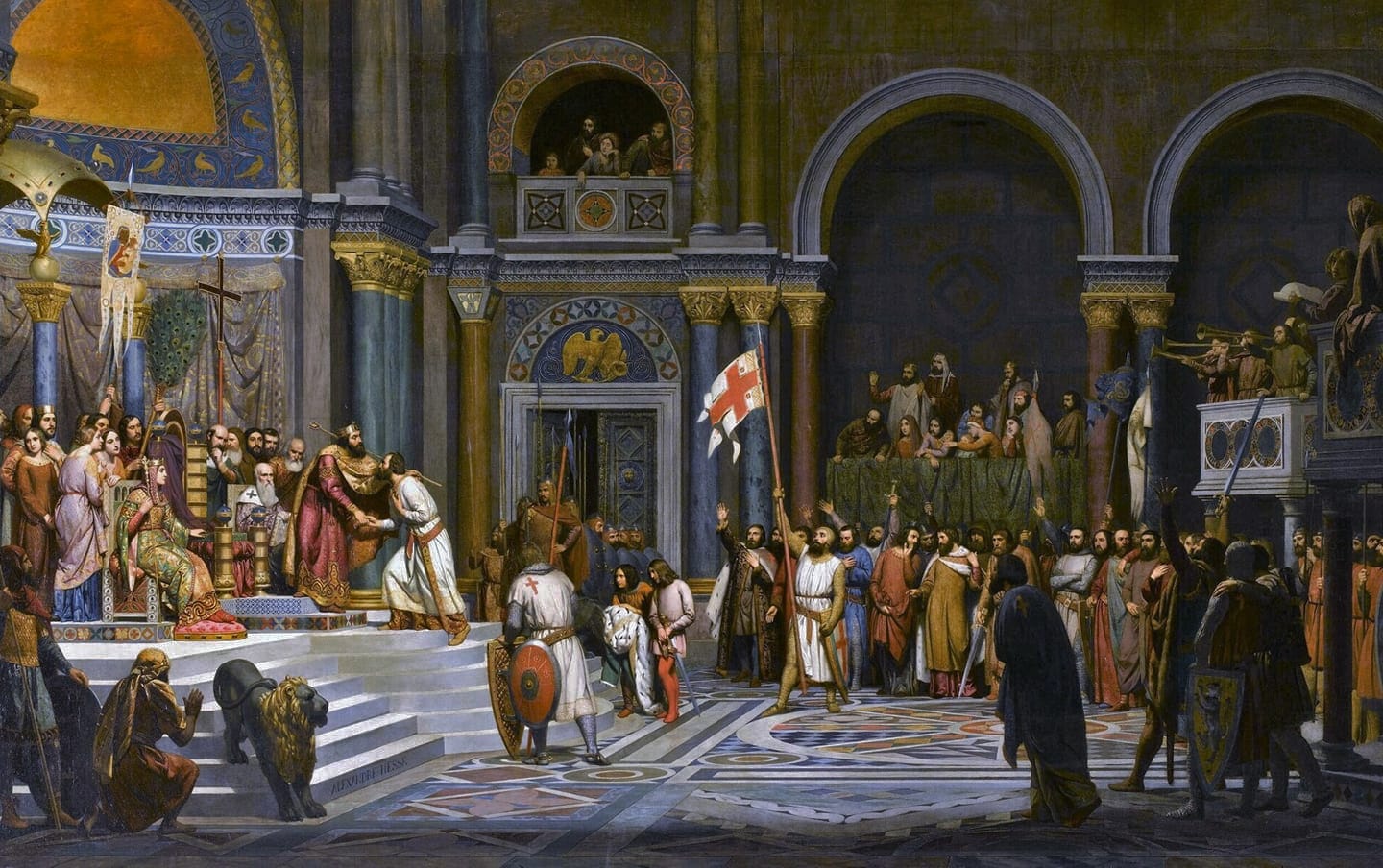
Alexius, wisely mistrusting the crusaders, and eager to ensure they passed through his lands as swiftly as possible, took the insurance of demanding their leaders swear an oath of fealty to him. This oath made clear the understanding that Alexius would support the Crusade logistically, and in return, any former Roman lands which it reconquered were to be returned to the Empire.
This demand caused great consternation in the crusader camp. After all, due to the Great Schism of four decades earlier, Catholic nobles were uncomfortable at the notion of serving an Orthodox emperor. Primarily, however, it was because the oath forced them to clarify to themselves the true purpose of the Crusade.
It was indeed in this delicate moment that Bohemond, determined to keep the Crusade together, first shone. Being the only one of them who could speak Greek, the language of the Roman court, he would serve as an invaluable intermediary. Acutely aware of the intensely awkward situation between himself and Alexius, he was exceedingly careful to avoid antagonising the Emperor.
As a result of this rather inspiring reconciliation, Bohemond managed to convince many of the crusader leaders to swear the oath. With brawls beginning to break out between crusaders and Greeks in the meantime, Alexius was only too pleased to ferry the Westerners, whether they had sworn the oath or not, across the Bosphorus in May 1097 and send them on their way, under the watchful eye and close support of his trusted general Taticius.
As the vast host of Christendom disembarked in Asia Minor, the First Crusade had truly begun…
The Anatolian March
As the most experienced soldier among the crusader nobles, in Asia Bohemond rapidly distinguished himself as a creative and charismatic commander.


